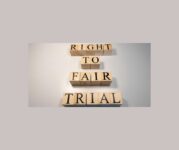Should the Media be Allowed to Report on Criminal Cases Before They are Finalised?

In recent weeks, the criminal defence lawyers representing a man accused of sexually assaulting Brittany Higgins have publicly stated that they are considering applying to the court for a postponement of the trial due to the amount of public attention there has been on the case.
The right to a fair trial
Under Australian law, everyone charged with a criminal offence has the right to a fair trial.
A defendant also has the right to be presumed innocent until and unless he or she is proven to be guilty in a court of law.
But many believe misleading and sensationalist reporting of criminal cases can make it difficult, or even impossible, for those who are accused to have a trial that is truly fair, impartial and decided only on the admissible evidence that is presented – that the presumption of evidence goes out the window once mainstream media journalists get their hands on information about a case.
That being the case, there have been calls for a blanket prohibition on reporting about criminal cases until and unless a person has pleaded or been found guilty.
Social media
High profile trials are nothing new, but the proliferation of social media has led to a situation whereby thousands can publicly express their views and pass judgment based on scanty, misleading or simply false information – a situation where it may not be possible to find jurors which are not in some way ‘tainted’ before the trial has begun.
This can impact adversely on notions of justice and a fair trial, and may even lead to wrongful convictions which are based on inadmissible material.
The PM’s apology and widespread media coverage
In the context of the upcoming Higgins’ trial, there has been an enormous amount of speculation and conjecture regarding the guilt or innocence of the defendant, spurred in part by the numerous (and some believe ‘one-sided’) reports by broadcasters such as The ABC and Channel 9.
Adding to this, fact the Prime Minister recently made a public apology for Parliament House’s toxic workplace culture, an apology which it could be inferred stems from an acknowledgement that the defendant in the Higgins case is guilty of sexual assault.
“I particularly want to acknowledge Brittany Higgins,” the Prime Minister stated publicly. “Her experience and her courage are the reason we are all here today. I am sorry to Ms Higgins for the terrible things that took place here.”
Most Australians are aware that it was the allegations by Brittany Higgins that set in motion a number of internal investigations into commonwealth workplaces as well as a review by Sex Discrimination Commissioner Kate Jenkins whose final report recommended that the Morrison Government make an apology.
But in the days immediately following the PM’s speech, the Director of Public Prosecutions in the ACT (the Higgins trial will be heard in the ACT Supreme Court) issued a statement urging an end to “all public commentary” including “by officers of the court and public figures”.
This is not just about protecting the defendant – it is to ensure a fair trial for all involved, including the complainant.
The impact of social media on a ‘fair’ trial
The concept of a fair trial revolves around the fact that the jury’s verdict is meant to be delivered based solely on evidence presented in the courtroom, under jury directions provided by the Magistrate which help jurors to understand their responsibility in reaching a verdict and the aspects of the law they have been asked to consider.
In recent years, a growing number of trial verdicts have been challenged based on ‘internet misconduct’ – which can include a myriad of things, including jurors doing their own background research, jurors watching media coverage of the trial, jurors publishing comments on social media or contacting others involved in the trial to discuss what’s going on in the courtroom…. All of these can amount to ‘passive influence’.
But it’s not only the jurors who can be swayed by ‘passive influence’. About 80% of Australians aged 13 and over have active social media accounts. Users of social media of course, include Magistrates, lawyers, as well as members of the general public who are chosen to sit on juries.
Many Australians no longer get their news through traditional sources of media where news is produced by editors and journalists who have a thorough knowledge and practical understanding of ‘prejudicial reporting’ and therefore make appropriate considerations when covering trials.
Social media, on the other hand, allows for anyone to express an opinion, share a snippet of information or engage in conjecture, and all of this can impact a trial.
An ongoing challenge for the justice system
Typically, a jury is responsible for deciding whether a defendant is innocent or guilty in serious criminal cases, being those heard in the higher courts such as the District and Supreme courts.
However, legal defence teams can ask for a Judge-only trial in certain situations including where here has been significant media coverage and it is considered to be difficult to find a completely impartial jury.
In New South Wales, along with Tasmania and ACT, there are rules in place which stop jurors from using mobiles and other devices during court hours and while deliberating a verdict. These rules are based to a large degree on trust – the idea of monitoring a jurors’ technology use during a trial represents a serious invasion of privacy.
There are also procedures in place to remove jurors who engage in misconduct, but courts tend to avoid a heavy-handed approach, unless the matter is extremely serious, which could include subjecting jurors to criminal charges, such as contempt of court, because they would most likely only result in dissuading people from undertaking their civic duty.
The challenge is ongoing. One solution may lie in better pre-trial training and education for jurors – helping them to understand the importance of their role, and the potential influence of news and social media, aiming to encourage jurors to practice self-restraint and do their best to avoid any information that could prejudice their decision-making in any way.







